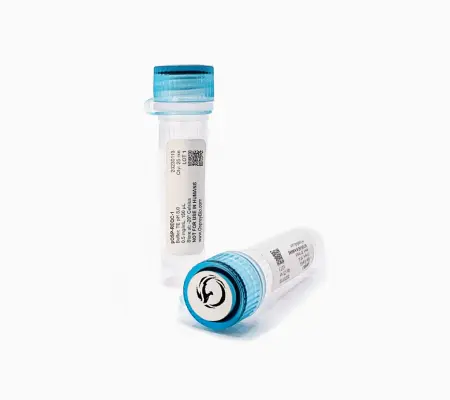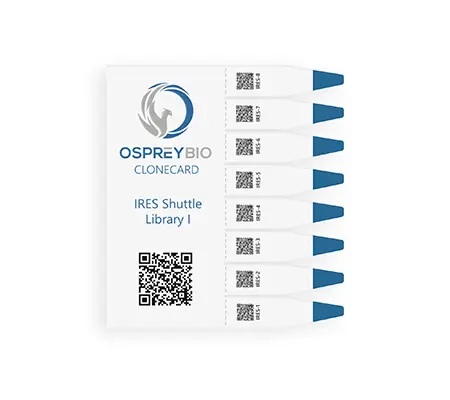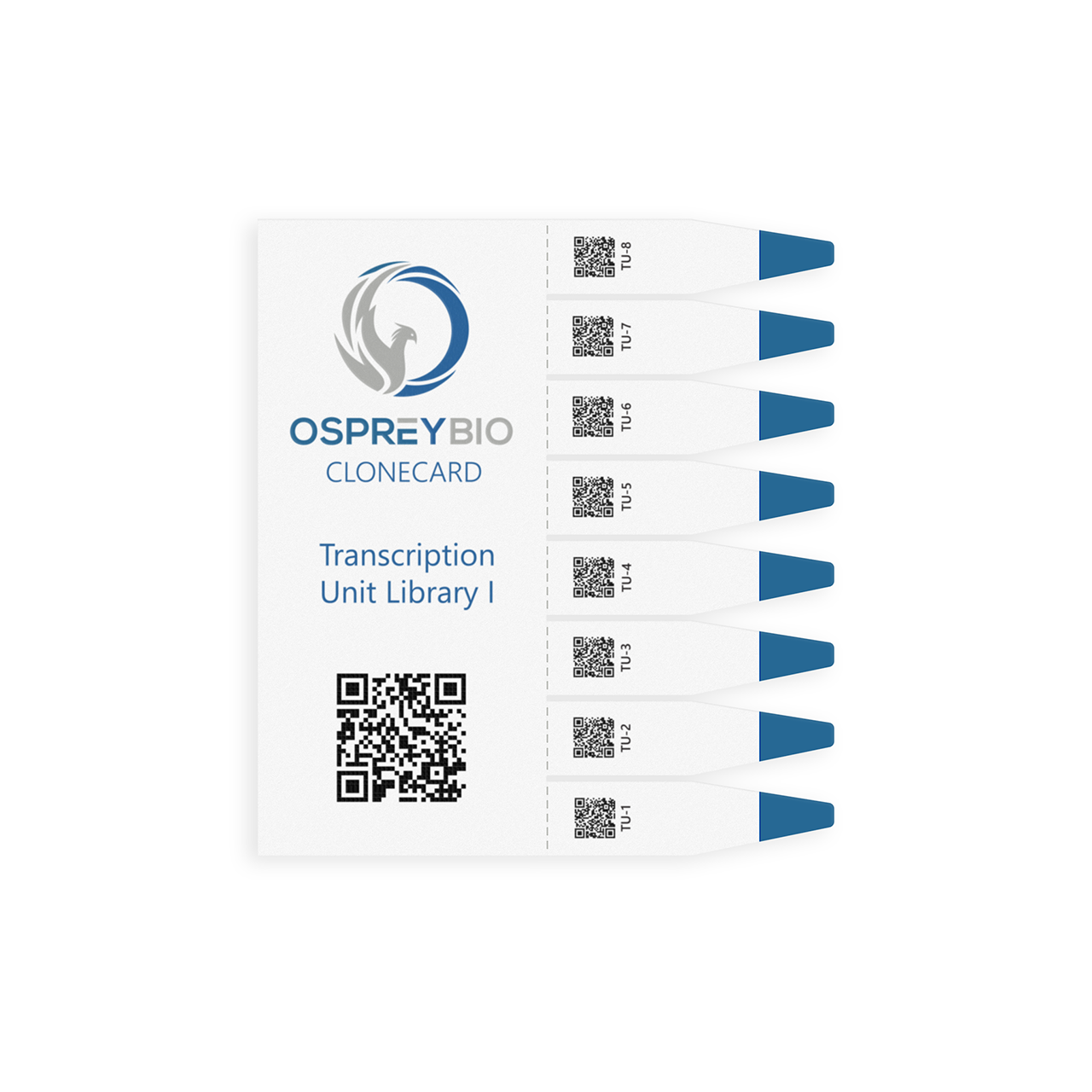Transcription Unit Library I
Patent Pending
OspreyBio's Transcription Units (TU) are built from a series of natural and/or synthetic modules that are mutated to be compliant with the Bird of Prey DNA Design and Assembly System.
Transcription Unit architecture is defined by a 5' Transcription Regulatory Module (R) and a 3' Transcription Processing Module (P).
The Transcription Regulatory Module (R) frequently includes DNA-encoded Promoter, Enhancer, Repressor Elements and/or chromatin modulators. Additionally, the "R" Module can include splicing elements and/or 5' untranslated regions (5' UTR). The Transcription Processing Module (P) frequently includes 3' Untranslated Regions (3'UTR), splicing elements, polyA signal(s), strong transcription terminators, and/or chromatin modulators.
- Ready-to-use plasmid after just one elution (~1 hour)
- Safe Long Term Storage: Can be stored flat at ambient temperature without the need for uninterrupted electricity supply (as in freezer storage) or the need for isolation from harmful agents (such as metal ions)
TU-1
| The “R” Domain contains elements derived from the hERP29 Proximal Promoter along with a unique Synthetic Splice Unit. The “P” Domain contains elements derived from the hACTB gene. |
| The “R” Domain contains elements derived from the hUCP2 Proximal Promoter along with a unique Synthetic Splice Unit. The “P” Domain contains elements derived from the hS100A11 gene. |
| The “R” Domain contains elements derived from the hEIF4A1 Proximal Promoter along with a unique Synthetic Splice Unit. The “P” Domain contains elements derived from the hADAM9 gene. |
| The “R” Domain contains elements derived from the hPCNA Proximal Promoter along with a unique Synthetic Splice Unit. The “P” Domain contains elements derived from the hCOL5A1 gene. |
| The “R” Domain contains elements derived from the mCYTH1 Proximal Promoter along with a unique Synthetic Splice Unit. The “P” Domain contains elements derived from the hACTN1 gene. |
| The “R” Domain contains elements derived from the mE2A Proximal Promoter along with a unique Synthetic Splice Unit. The “P” Domain contains elements derived from the hKDELR3 gene. |
| The “R” Domain contains elements derived from the hPNP Proximal Promoter along with a unique Synthetic Splice Unit. The “P” Domain contains elements derived from the hANPEP gene. |
| The “R” Domain contains elements derived from the SM22/TAGLN Proximal Promoter along with a unique Synthetic Splice Unit. The “P” Domain contains elements derived from the hCD58 gene. |
| The “R” Domain contains elements derived from the hERP29 Proximal Promoter along with a unique Synthetic Splice Unit. The “P” Domain contains elements derived from the hACTB gene. |
| The “R” Domain contains elements derived from the hUCP2 Proximal Promoter along with a unique Synthetic Splice Unit. The “P” Domain contains elements derived from the hS100A11 gene. |
| The “R” Domain contains elements derived from the hEIF4A1 Proximal Promoter along with a unique Synthetic Splice Unit. The “P” Domain contains elements derived from the hADAM9 gene. |
| The “R” Domain contains elements derived from the hPCNA Proximal Promoter along with a unique Synthetic Splice Unit. The “P” Domain contains elements derived from the hCOL5A1 gene. |
| The “R” Domain contains elements derived from the mCYTH1 Proximal Promoter along with a unique Synthetic Splice Unit. The “P” Domain contains elements derived from the hACTN1 gene. |
| The “R” Domain contains elements derived from the mE2A Proximal Promoter along with a unique Synthetic Splice Unit. The “P” Domain contains elements derived from the hKDELR3 gene. |
| The “R” Domain contains elements derived from the hPNP Proximal Promoter along with a unique Synthetic Splice Unit. The “P” Domain contains elements derived from the hANPEP gene. |
| The “R” Domain contains elements derived from the SM22/TAGLN Proximal Promoter along with a unique Synthetic Splice Unit. The “P” Domain contains elements derived from the hCD58 gene. |




